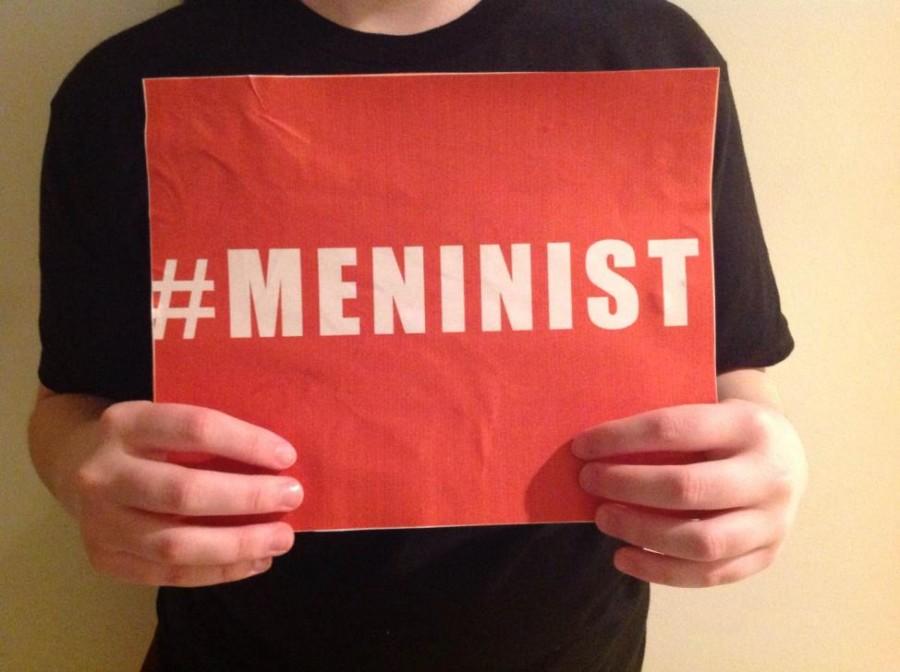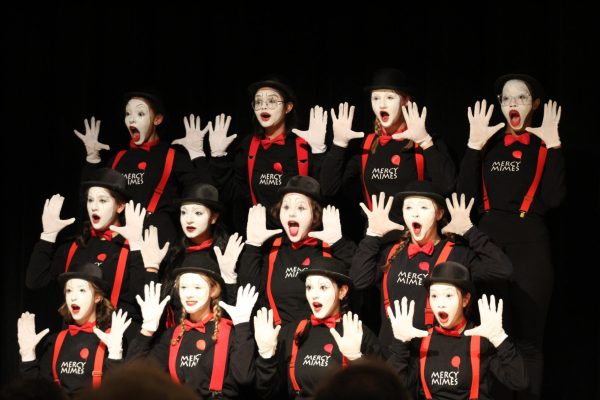“Meninism” demonstrates that feminism needs a makeover
Mercy exists to empower young women. We have classes that focus on women such as Women in Literature and Women in the Bible, and the FEMClub helps make students aware of women’s issues in today’s world. We are a school that educates young girls so that they can bring equality into the world when they enter it. At Mercy, therefore, feminism is seen as a positive thing. Some people, however, mistakenly see feminism as an attempt to oppress men. Out of this misconception, “meninism” was born.
Meninism started as a Twitter account parodying feminism called #Meninist. Some Twitter users, however, did not read the account’s bio, which clearly states that the account is a parody. These enthusiastic young men have recently rallied around the word “meninism,” imagining themselves crusaders for men’s rights. They have even created their own merchandise and posted photos of themselves wearing it.
The group has no official mission statement, but they apparently oppose the gender-based oppression of men, and they seem to stand directly against feminists; many of their posts demonstrate extremely low opinions toward women in general. One tweet states “Women are like used cars . . . No matter how much you like it, just remember another guy beat the s*** out of it then ditched it for a better one.”
The group has faced ridicule online from those who understand that the original account is a parody, and the movement will likely fade out soon. The fact that young men feel the need to create such a group, however, is extremely telling. It indicates that some young men are feeling left out of the feminist movement. They are interpreting it as a campaign against men, and they have constructed a defense in meninism.
It is true that men face the gender stereotypes that meninists rail against. In her recent speech before the United Nations General Assembly, actress Emma Watson described the expectations placed on men because of their gender.
“We don’t often talk about men being imprisoned by gender stereotypes,” Watson said in her speech, “but I can see that they are, and that when they are free, things will change for women as a natural consequence. If men don’t have to be aggressive in order to be accepted, women won’t feel compelled to be submissive. If men don’t have to control, women won’t have to be controlled.”
Watson also stated that the word “feminism” has garnered a negative connotation among today’s youths.
“Women are choosing not to identify as feminists,” said Watson. “Apparently, I’m among the ranks of women whose actions are seen as too strong, too aggressive, isolating, and anti-men.”
Meninism — and its inherent anti-feminism — is simply a reaction to the word “feminism.” Feminism means equal rights for men and women, but by labeling itself with the prefix “fem,” it alienates males. If feminism were relabeled “equality” (a much more accurate name), most people would support it. This would also solve the problem of men mistaking feminism for an anti-male movement.
While it is admirable that Mercy focuses on empowering women, we must not lose sight of what the definition of feminism really is: equal rights for all people, not just women. Men need to feel included in the movement for gender equality, or it can never succeed. Perhaps it is time that we drop the word feminism for a less outdated rallying cry. This may be the only way to make the rest of the world see feminism the way Mercy does: as a positive force for change in the world.







